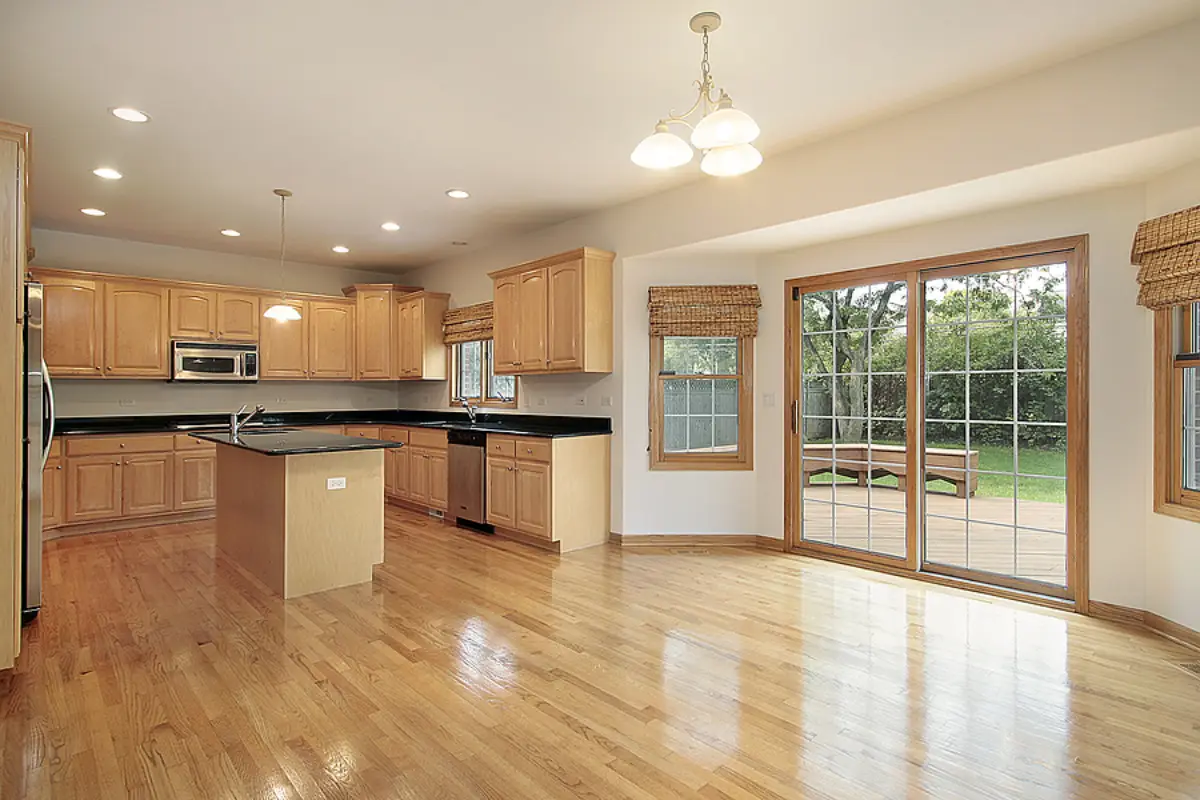Richmond’s rental scene blends historic charm with steady demand from universities, hospitals, and a growing tech and logistics footprint. Units near The Fan, Church Hill, and Scott’s Addition often lease quickly, yet speed alone does not guarantee profit. One AC failure in July, a vacancy that lingers after graduation season, or a premium hike on insurance can flatten a month of income. Numbers matter, but a plan matters more. A practical budget turns a good property into a dependable business, smoothing out the highs and lows that come with the local market. At PMI James River, we help owners turn cash flow into a system that works month after month, beginning with reliable processes and modern tools like these rent collection tips that reduce late payments and uncertainty.
Key Takeaways
- Budget from conservative income, not perfect occupancy, to reduce surprises.
- Keep a dedicated reserve so repairs do not derail monthly cash flow.
- Target upgrades that raise rent, shorten vacancy, and attract long stays.
- Track expenses year round to capture deductions and simplify tax time.
- Use management and reporting systems to scale without losing control.
Start With Realistic Income, Not Hopes
Projecting income at 100 percent occupancy is easy, but Richmond leases do not always align with a perfect calendar. Build your budget with a vacancy factor of at least 5 percent, and consider a slightly higher buffer if your property caters to student cycles or seasonal workers. For example, an apartment that rents at 1,900 dollars per month looks like 22,800 dollars per year, but a 5 percent vacancy adjustment brings it closer to 21,660 dollars. That difference can be the margin that pays insurance, covers utilities during a guest turnover, or funds your next upgrade. Conservative projections protect you when move outs come with little notice and marketing takes longer than expected.
Three habits for realistic projections
- Compare your asking rent to recent leases in your micro area, not the whole city.
- Review lease expirations so too many units do not turn during the same month.
- Price for renewal, small increases often keep great residents and reduce vacancy days.
See Every Cost, Fixed and Variable
A rental works when income exceeds all costs that come with it. Fixed costs are predictable, variable costs are not, and both need room in your budget.
Fixed costs you will pay regardless
- Mortgage principal and interest
- Property taxes set by Richmond City
- Insurance premiums appropriate for your property type
Variable costs that swing month by month
- Repairs and preventive maintenance
- Utilities you carry between residents or as part of the lease
- Landscaping and routine pest control
- Turnover cleaning and paint
- Management fees
Plan to set aside 5 to 10 percent of rent for upkeep. That simple habit prevents last minute scrambles when the water heater reaches the end of its life or a disposal stops working. Many owners hesitate to budget for management, yet professional oversight commonly improves net income by filling vacancies faster, reducing collections issues, and preventing costly mistakes in advertising, screening, and compliance.
Build a Reserve That Actually Gets Used
A repair fund is not a nice extra, it is your shock absorber. Richmond summers are hot and humid, winter cold snaps do happen, and storms can push debris into gutters and onto roofs. Create a separate account that receives 5 to 10 percent of monthly rent, and commit to using that reserve only for property needs. When an HVAC repair arrives, you will not pull from personal savings, and you will not delay a fix that affects resident comfort. Properties that get repaired quickly keep better tenants and earn better reviews, which lowers future vacancy.
What belongs in your reserve
- Mechanical systems service, including HVAC, water heater, and electrical
- Roof and gutter work after heavy weather
- Appliance repair or replacement
- Emergency plumbing and lock issues
Upgrade With Purpose, Not Impulse
Not every improvement raises rent or retention. Focus on upgrades that future residents can see and feel on the first tour. Energy efficient appliances can lower utility bills, making your unit more competitive. Durable flooring, fresh paint in neutral tones, and updated lighting show well in listing photos and reduce turnover costs. Smart locks and video doorbells add convenience for residents and easy access control for maintenance. Curb appeal, even simple landscaping, helps your property stand out in online searches and at street level.
When paired with faster tenant placements, thoughtful upgrades reduce days on market and attract residents who stay longer. Track each upgrade’s cost and effect on rent so you can repeat high return projects across the portfolio.
Use Tools That Keep Cash Flow Organized
Paper folders and generic spreadsheets hide problems and lead to missed deductions. Modern reporting clarifies performance and prevents small gaps from turning into big questions at tax time. PMI James River provides owner portals that show monthly statements, income versus expense trends, and invoices tied to each property. You can compare buildings, watch turn costs, and download tax ready reports in minutes. Clear data lets you adjust pricing, adjust renewal strategies, and choose the right time for larger improvements.
What good reporting delivers
- Month to month cash flow comparisons
- Line item detail for repairs and turns
- Easy documents for your CPA
- Notifications that flag balances, lease expirations, and insurance renewals
Budget With Taxes In Mind All Year
Tax planning is not something you do in March, it is part of your operating budget. Track and categorize throughout the year so you capture the deductions that belong to you.
- Mortgage interest is often your largest annual deduction, so keep statements organized.
- Management fees are deductible as operating expenses, and they support documentation for rent, notices, and maintenance.
- Repairs are deductible in the year you pay for them, so record even the small items.
- Mileage and travel for inspections, showings, and supply runs can qualify, keep a log.
- Depreciation spreads the purchase price across its useful life, a non cash deduction that lowers taxable income and improves cash flow.
Accurate records remove the last minute rush and help your tax professional identify additional savings specific to your situation.
Stay Compliant, Stay Protected
Compliance is part of budgeting because safety equipment, inspections, and documentation all cost money and time. Allocate funds for annual safety checks, battery replacements, and upgrades as codes change. To stay current on requirements that apply in Virginia, review this concise guide to smoke and CO rules, then calendar recurring reminders. A small yearly line item beats the cost of fines or a failed inspection, and it protects residents, which protects your income.
Scale Without Losing Control
Adding doors multiplies everything, good and bad. The solution is a per unit budget that shows you which assets are pulling their weight and which need attention. Compare rents, renewal rates, work order volume, and turn costs by address. Group services wherever you can. Contract lawn care, gutter cleaning, and pest control across multiple homes to lower the unit rate. Standardize paint, flooring, and hardware to simplify turns and reduce materials waste. With PMI James River coordinating leasing, collections, inspections, and maintenance, growth becomes organized rather than chaotic.
Make Budgeting a Year Round Habit
A budget is not a document you print once and file away. Review it every quarter, then adjust based on what your reports reveal. If your vacancy rate rises in a particular neighborhood, audit pricing and marketing. If one home consumes repairs, schedule a preventive inspection and plan a larger fix during the next renewal window. The Richmond market rewards owners who act early. Consistent attention keeps cash flow steady, supports long term gains, and lowers stress for everyone involved, including residents.
Turn Numbers Into Momentum
A strong budget does not restrict you, it frees you to make better choices about upgrades, pricing, and growth. PMI James River brings local leasing expertise, modern rent systems, and detailed reporting together so your properties perform with fewer surprises. Ready to turn your plan into action and protect your bottom line through every season in Richmond City, VA? Connect with our team and let us tailor a budget and operating plan that fits your goals. Start your next step by tapping here to connect with PMI James River now.
FAQs
What percentage should I save for maintenance each year?
A simple starting point is 1 percent of the property’s value, and you can increase it for older homes or homes with aging systems. Break that into a monthly transfer to a reserve account so the funds are available when you need them, then refill the account after larger projects to keep your cushion intact.
How do I budget for turnovers in Richmond’s seasonal cycles?
Review your lease expirations and set renewals so they end in high demand months like late spring or early summer. Budget a standard turn package that includes cleaning, touch up paint, lock rekeying, and minor repairs, then add a small contingency for surprises so you can move quickly between residents.
Which upgrades usually deliver the best return in Richmond rentals?
Projects that show up in photos and reduce maintenance tend to perform well. Durable luxury vinyl plank, energy efficient appliances, bright lighting, and refreshed kitchens and baths help listings stand out and reduce calls after moving in. Track rent increases and vacancy days before and after each upgrade to confirm results.
Are property management fees worth adding to the budget?
Many owners find that professional management increases net income through better marketing, stronger screening, consistent rent collection, and faster response to maintenance. Fees are also deductible as operating expenses, and the documentation your manager provides reduces admin time and errors.
How often should I adjust my rental budget?
Review your numbers quarterly and perform a deeper annual review. Use monthly statements to spot trends early, then adjust your vacancy factor, repair set asides, or upgrade schedule. Small adjustments made regularly prevent big corrections later and keep your portfolio aligned with your goals.


